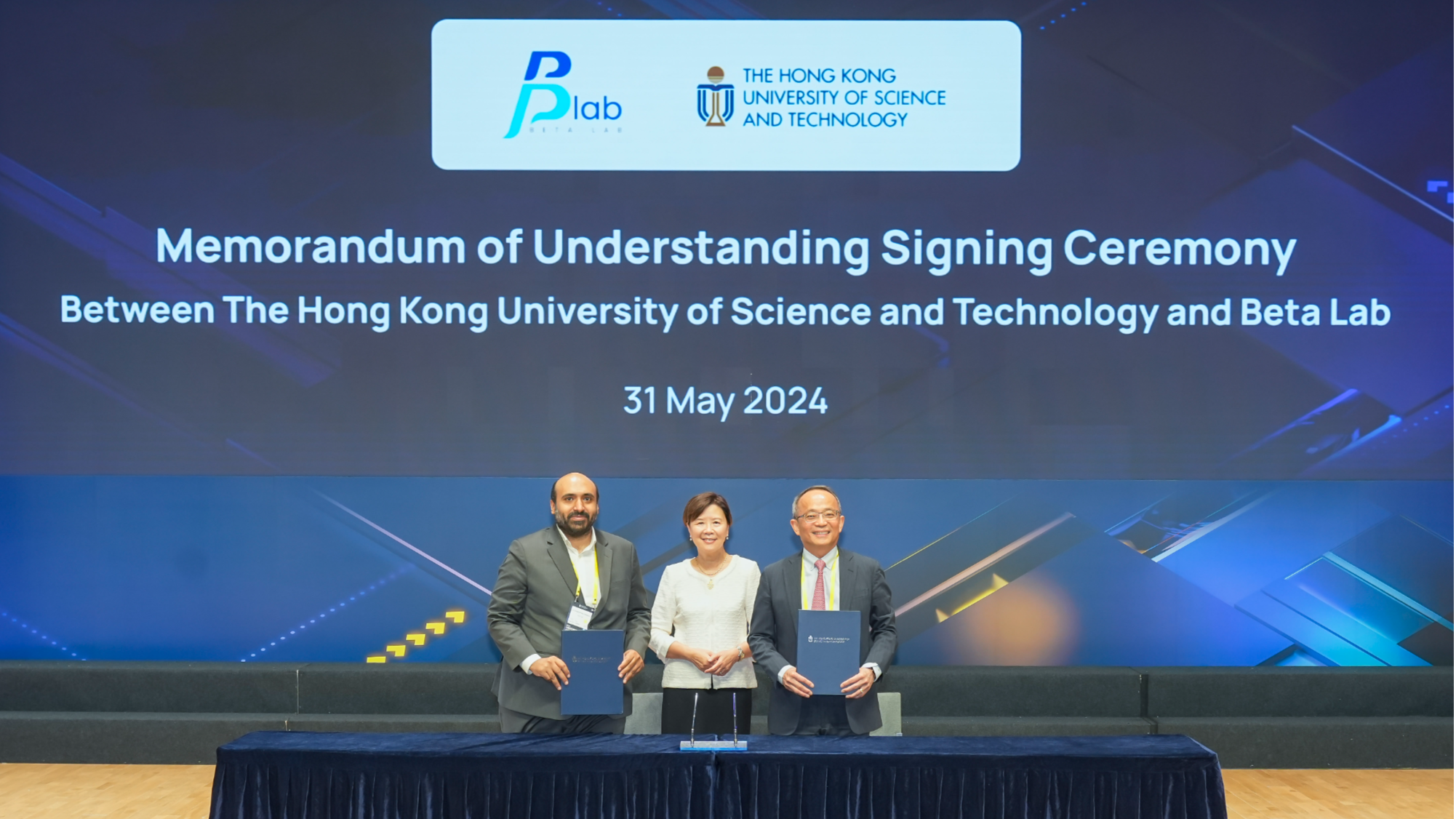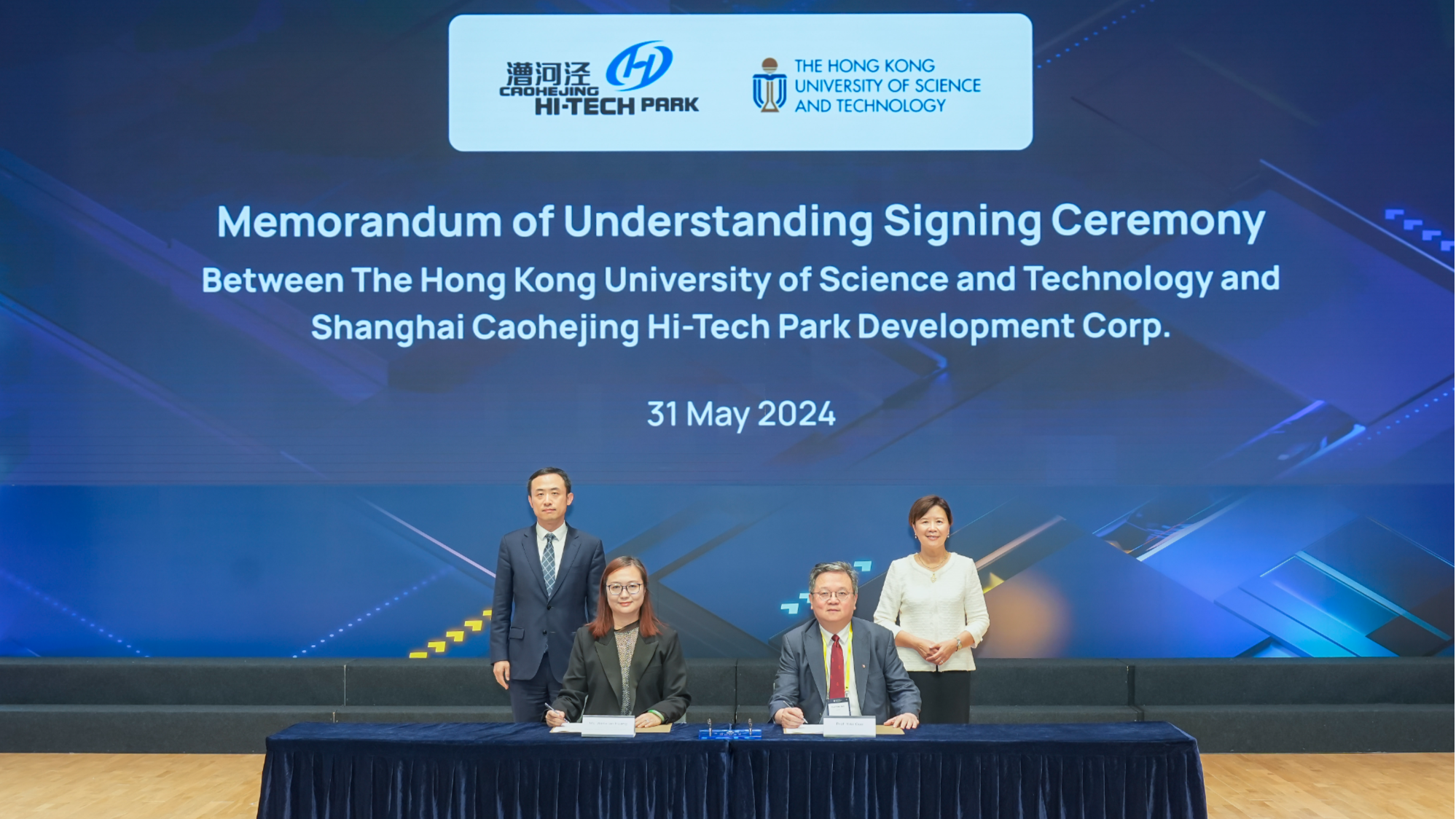
A miniature cleaning robot, virus-detecting wearable sensors and smart bioelectronics dressing for healing wounds caught the eye at a Hong Kong event showcasing over 100 products developed by startups.
It was also revealed at the Hong Kong University of Science and Technology (HKUST) Unicorn Day that the hosts had signed cooperation agreements and memorandums of understanding (MoUs) with incubation platforms in Shanghai and Saudi Arabia, as well as three Hong Kong companies, to bolster its startups and help them access domestic and global markets.
Under one of the deals inked during the HKUST Unicorn Day, the university will establish an AI education hub and incubator at Shanghai’s Caohejing Hi-Tech Park, which is home to more than 14,000 domestic and overseas firms. The initiative is part of the HKUST Shanghai Center program earlier this year to cultivate talent for the innovation and technology industry.
READ MORE: HK's thriving startup scene shows SAR's bright future
HKUST’s cooperation agreement with Beta Lab — a Saudi Arabian venture capital firm specializing in nurturing deep tech, which typically relates to startups focused on finding solutions to substantial scientific or engineering challenges — is expected to provide the university’s homegrown startups increased exposure to international resources and markets.
The collaboration with Shanghai’s innovation incubator is part of HKUST’s strategy to deepen ties with tech-savvy cities in the Yangtze River Delta region, while also tapping into local alumni resources, said Tim Cheng Kwang-ting, vice-president for research and development at the HKUST.
Driven by the same motivation, HKUST has also established a presence in the Chinese mainland cities of the Guangdong-Hong Kong-Macao Greater Bay Area, such as Guangzhou and Shenzhen, so it can leverage the strong R&D and technology commercialization capabilities there, Cheng added.

Furthermore, the university signed MoUs at the event with three Hong Kong companies — foodmaker Lee Kum Kee Group, Nan Fung Life Sciences Holdings, and financial services firm Sun Hung Kai & Co — to provide support for deep-tech companies that are still in the early stages of development. This cooperation is also part of HKUST’s launch in April of the Redbird Innovation Fund, which plans to raise HK$2 billion ($255.8 million) for its startups.
Cheng said these partnerships are valuable not just for the investment but because the three companies have well-developed commercial networks can help startups build industry connections.
READ MORE: HK an emerging innovation hub with global potential
In a move to further leverage the role of local institutions as a driver of Hong Kong’s innovation landscape, HKUST President Nancy Ip Yuk-yu revealed the university is planning to establish an “InnoBay” — a facility that integrates scientific research and applied innovation — in the city and build more deep-tech incubation spaces on its campus.
Hong Kong is home to five universities ranked among the world’s top 100, which support the city’s development into an international center for innovation and technology.
In October 2023, the Hong Kong Special Administrative Region government allocated HK$10 billion ($1.28 billion) to launch the Research, Academic and Industry Sectors One-plus Scheme to help commercialize research output. An aim of the scheme is to “showcase many investment opportunities are from the universities”, said Ivan Lee Kwok-bun, commissioner for innovation and technology at the government’s Innovation, Technology and Industry Bureau.
Contact the writer at irisli@chinadailyhk.com


